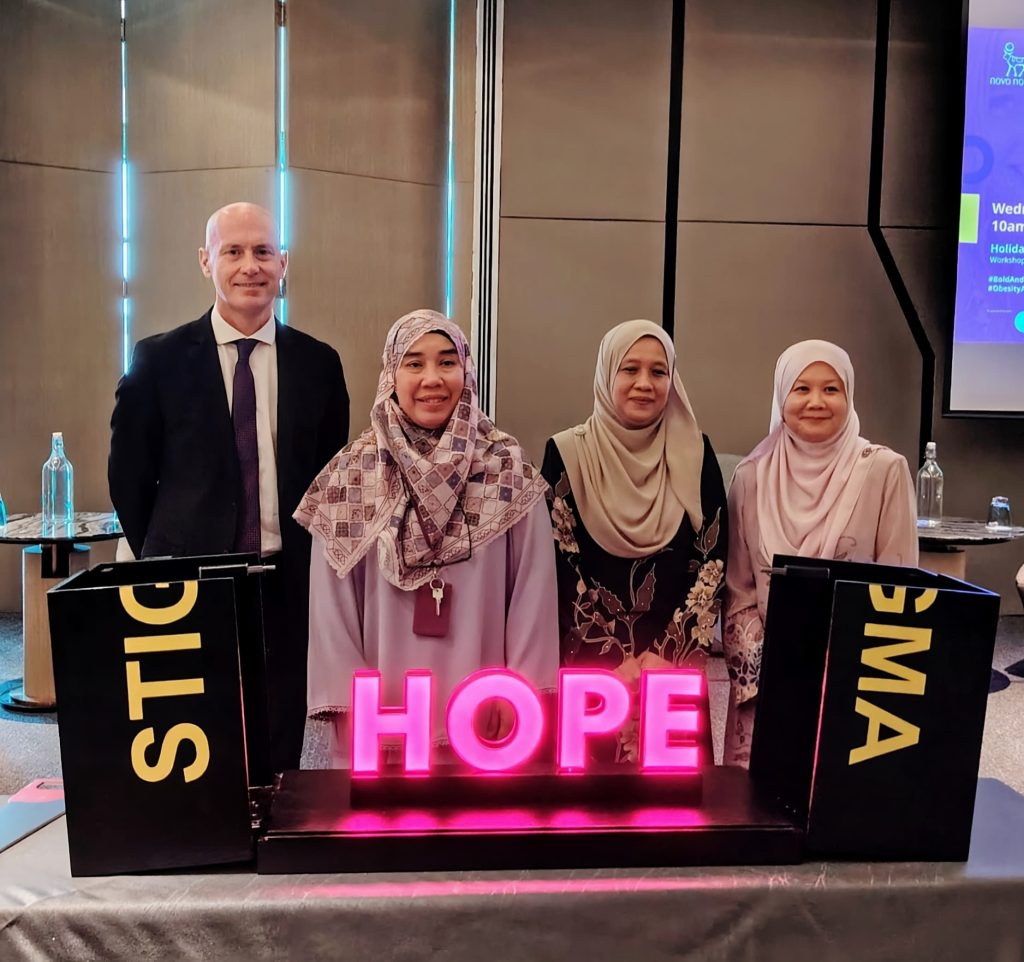Recognising obesity as a disease is key to better health outcomes and tackling stigma
By Siti Salihah

On Wednesday, 26th February 2025, Novo Nordisk Pharma (Malaysia), together with the Malaysian Obesity Society (MYOS) and the Malaysian Endocrine and Metabolic Society (MEMS), hosted an event at Holiday Inn, Bangsar, in conjunction with International Women’s Day and World Obesity Day.
Themed “Bold and Unbound: Leading the Charge in Reshaping Societal Perceptions of Obesity,” the event aimed to redefine obesity as a disease rather than a lifestyle choice. Among the key speakers were Mr. Cihan Serdar Kizilcik, General Manager of Novo Nordisk Pharma (Malaysia); Dr. Noraryana, Deputy Director of Non-Communicable Diseases; Prof. Dr. Rohana binti Abdul Ghani, President of the Malaysian Obesity Society (MYOS); and Dr. Nurain Binti Mohd Noor, Head of the Endocrinology Subspecialty Service at the Ministry of Health (MOH) and President of the Malaysian Endocrine and Metabolic Society (MEMS).
Malaysia’s Obesity Crisis
Obesity remains widely misunderstood in Malaysia, despite being a growing health concern. The National Health & Morbidity Survey (NHMS) 2023 revealed that half of the Malaysian population is overweight or obese, yet many still see it as a personal failing rather than a chronic disease. This misconception fuels stigma and prevents people from seeking medical help—one of the key issues addressed at the event.
Mr. Cihan Serdar Kizilcik emphasised this point, stating, “At Novo Nordisk, we are committed to addressing obesity with a medical approach. Recognising it as a disease is the first step towards meaningful change.”

Offering Help, Not Judgment
Beyond statistics, the event also highlighted how women play a vital role in reshaping perceptions of obesity. Not only do they experience higher rates of obesity, but as caregivers and healthcare decision-makers in their families, they have the power to drive change. With women making up 70% of the global healthcare workforce, their leadership is vital in shifting attitudes and promoting evidence-based obesity management.
Dr. Noraryana, Deputy Director of Non-Communicable Diseases, highlighted the need for integrated solutions to address both the medical and social challenges of obesity. “We need to provide people with comprehensive healthcare support that focuses on long-term management, rather than blaming individuals for their weight. Obesity is not simply about food intake; it is a complex interplay of biological and environmental factors that require medical intervention.”
Real Stories, Real Struggles
Aida Tahir, a woman living with obesity, shared her personal journey during the event. “Living with obesity has been a lifelong challenge. Since adolescence, I have struggled to lose weight. But more importantly, I am now focusing on my health rather than just the number on the scale. Health is what truly matters.”
Her story echoed a key message from the event—tackling obesity isn’t about willpower alone. It requires understanding, medical intervention, and a shift away from harmful stigma.
Where to Get Help
For those seeking medical support for obesity management, weight management clinics in select public hospitals offer structured care. Staffed by a multidisciplinary team—including endocrinologists, dietitians, clinical psychologists, and surgeons—these clinics provide medical, nutritional, and psychological support with personalised treatments for sustainable weight management.
These specialised clinics are available at hospitals equipped with the expertise to address obesity, such as Hospital Putrajaya under the MOH, as well as university hospitals like Hospital Canselor Tuanku Muhriz UKM, Hospital Sultan Abdul Aziz Shah UPM (HSAAS), Pusat Perubatan Universiti Malaya (PPUM) and Hospital Al-Sultan Abdullah, UiTM.
By accessing professional care, individuals struggling with obesity can move beyond stigma and receive tailored, evidence-based solutions for long-term health improvements.
The Way Forward
The event reinforced one crucial takeaway—recognising obesity as a disease is not about making excuses; it’s about ensuring people receive the care they deserve. With collective action from policymakers, healthcare professionals, and society, we can create a future where those living with obesity receive support, not stigma.











